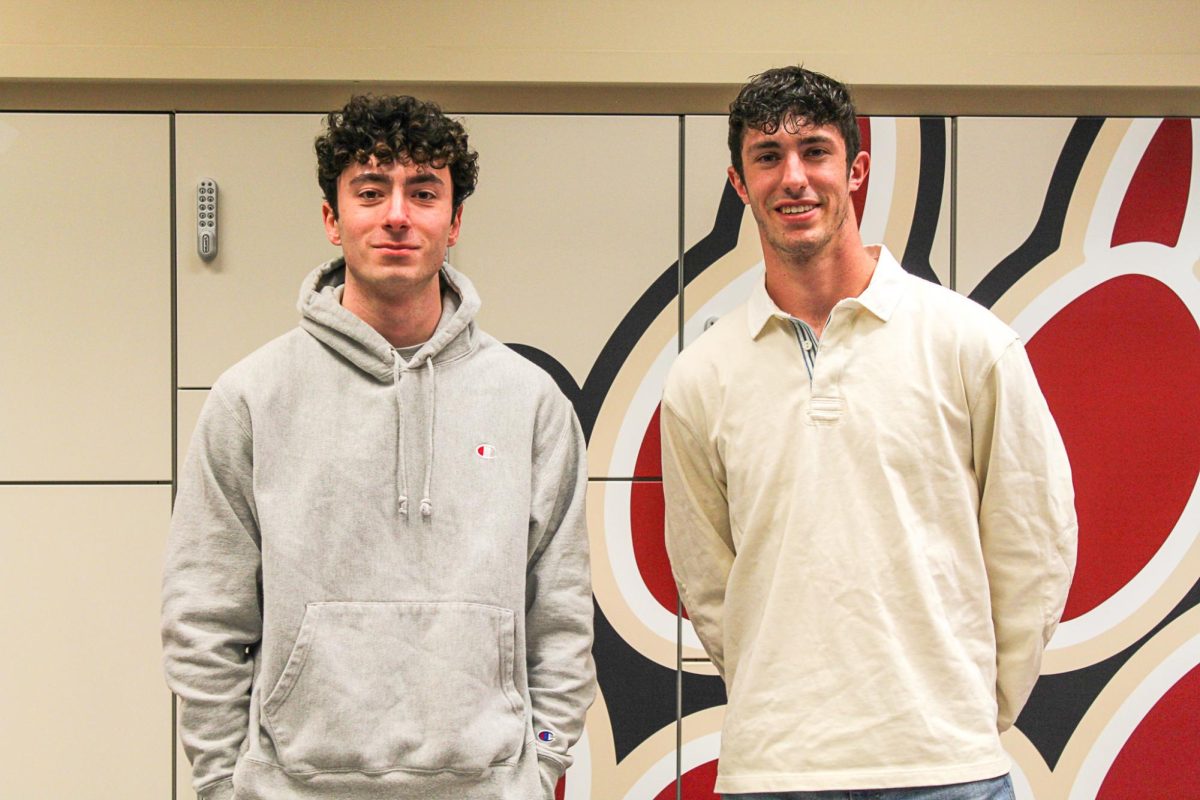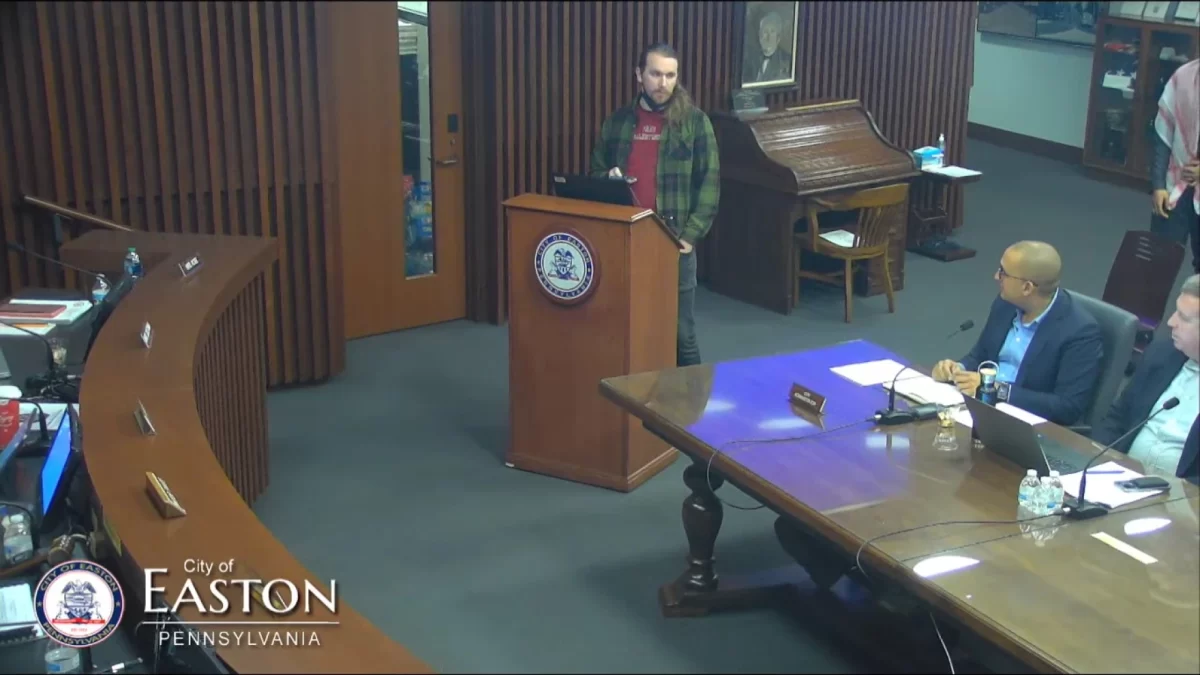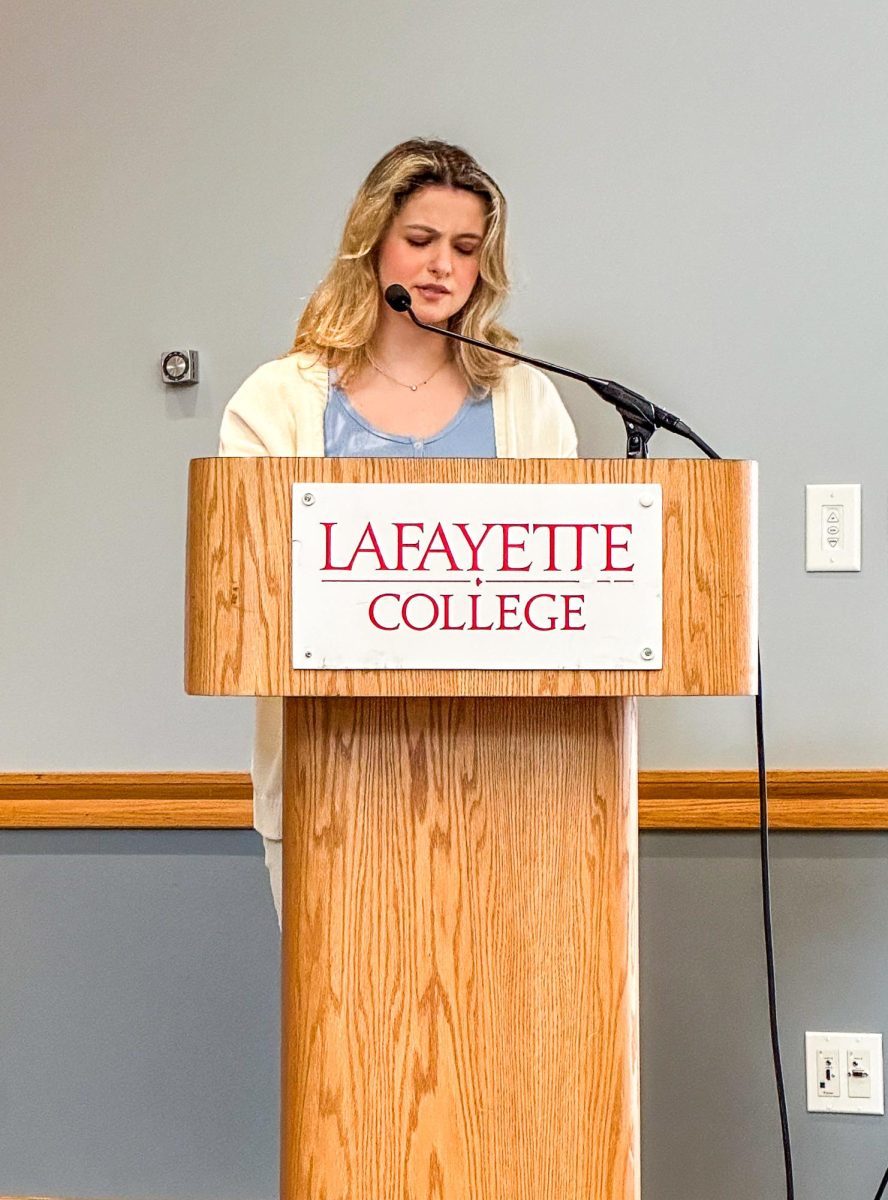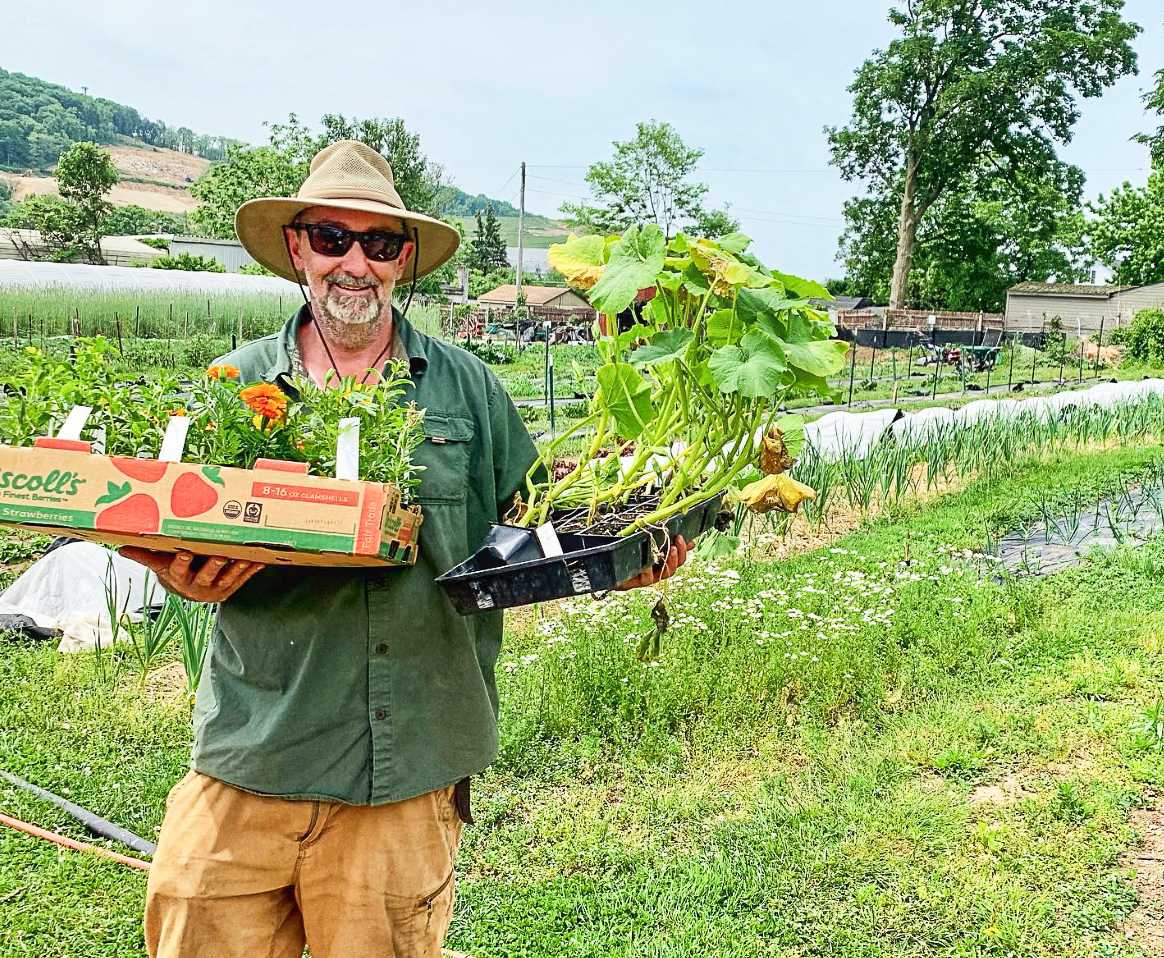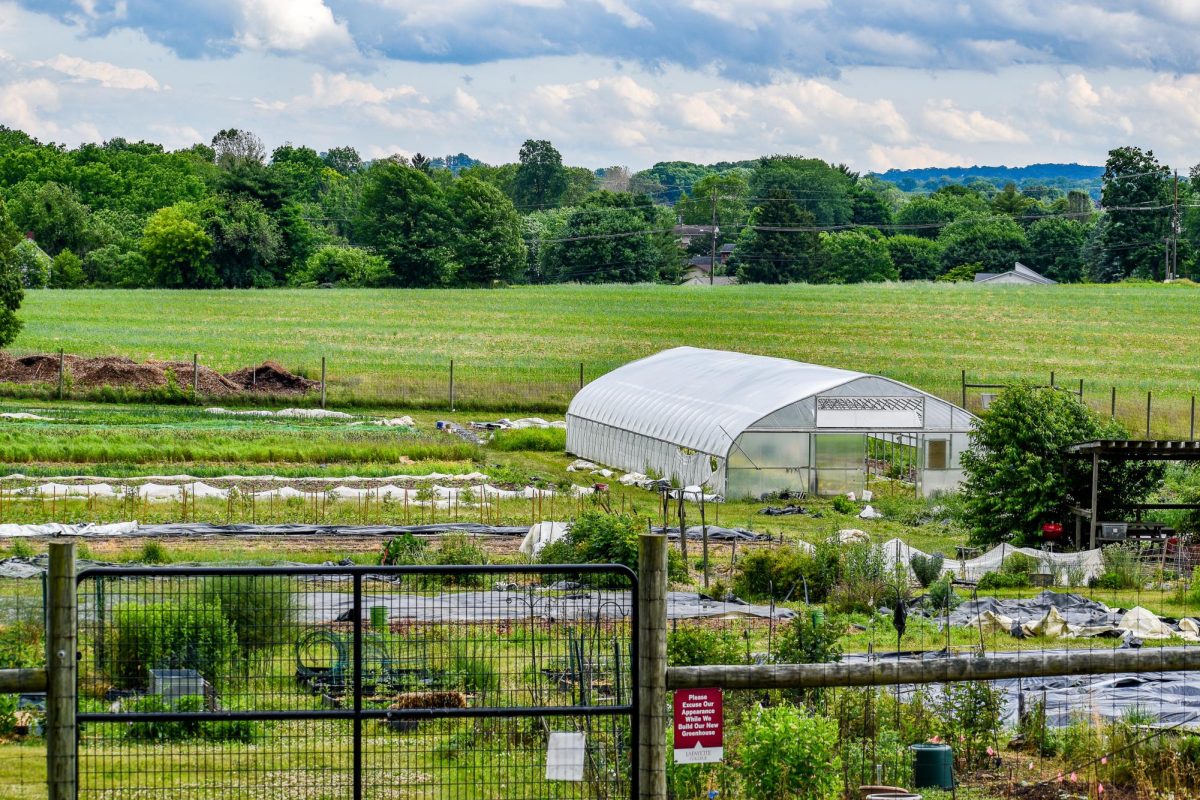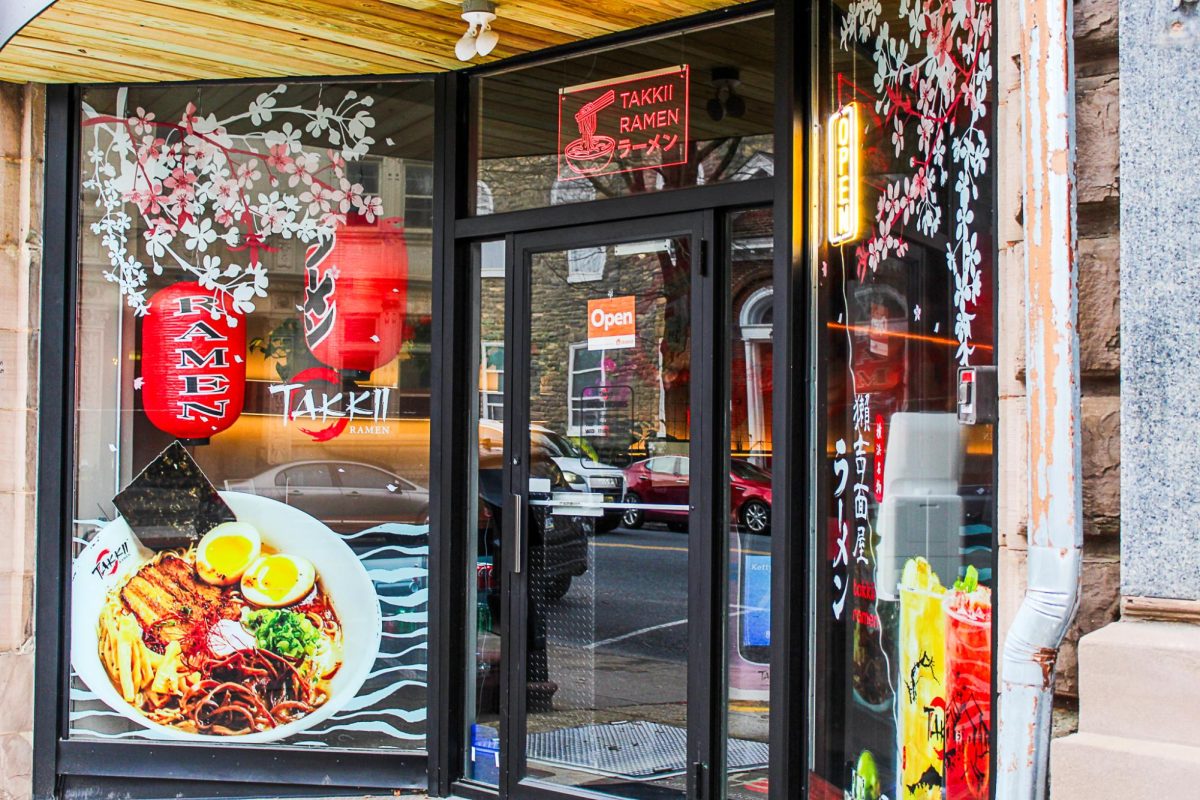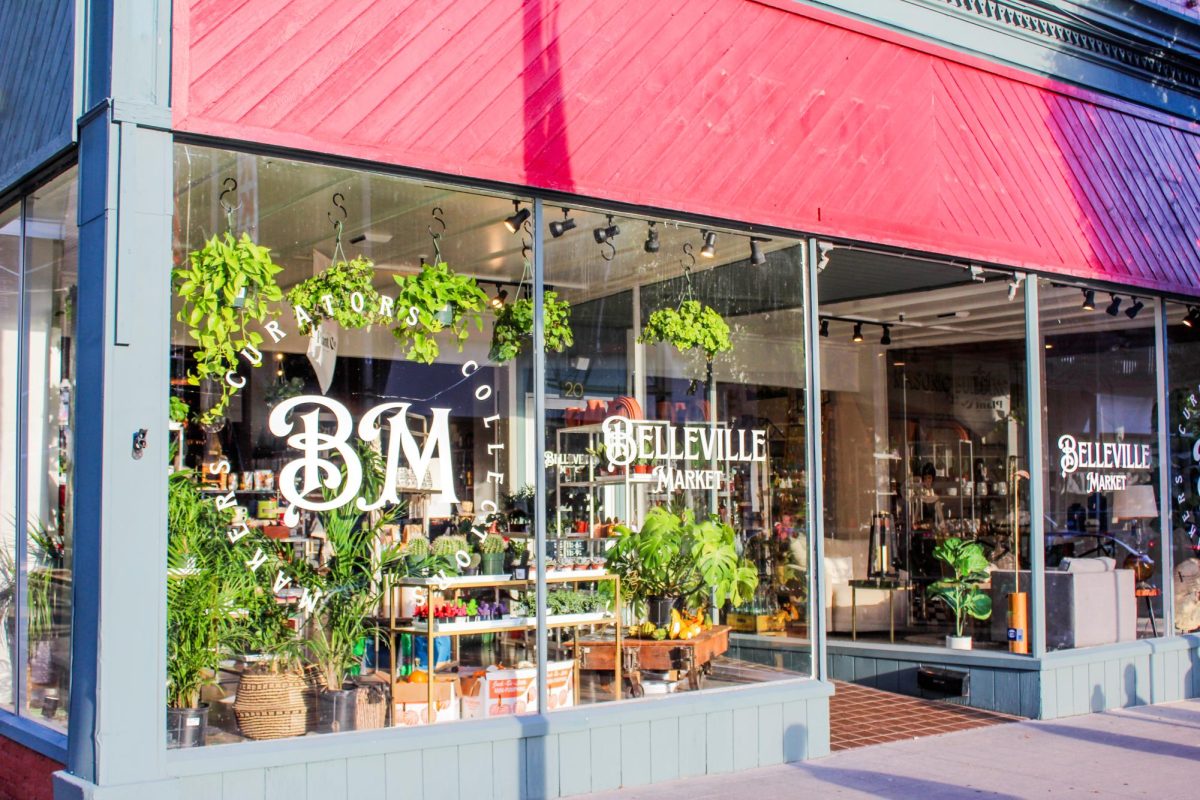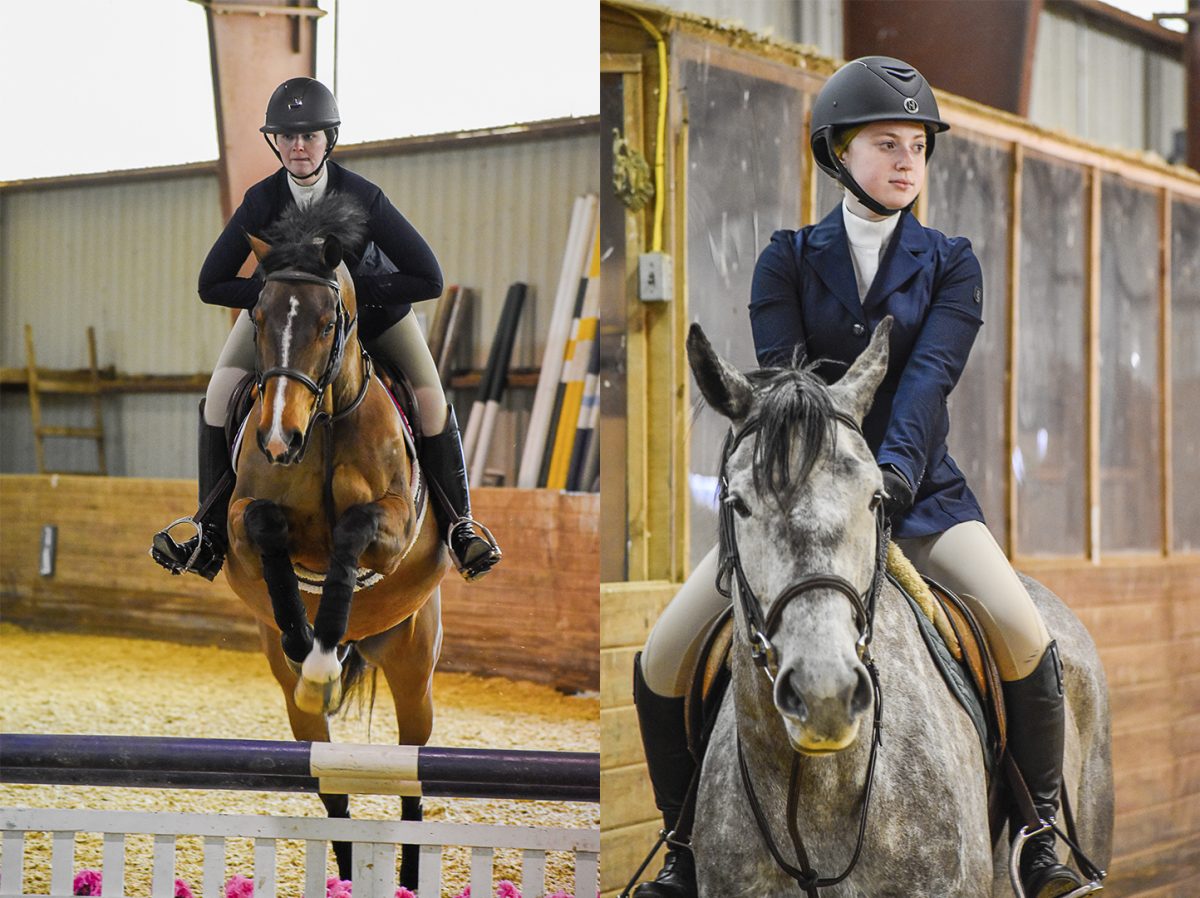Photo by Alyssa Braver ’16 | The Lafayette
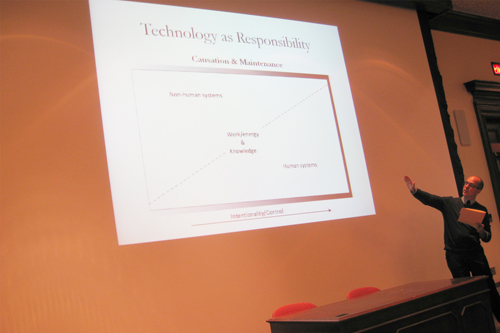
This past Tuesday, Wyatt Galusky, a philosophy professor from SUNY-Morrisville and Hamilton College, gave a lecture entitled “Technology as Responsibility: Failure, Food Animals, & Lab-grown Meat. “ The lecture focused on the relationship between humans and animals and how problematic our agriculture system has become.
One potential solution to this, according to Galusky, is “in-vitro” meat, which means using technology to grow meat cells outside of an animal body. With “in-vitro” meat, animal cells are recreated in a lab to help fulfill industrial goals and help fix some of the concerns of industrial agriculture.
Galusky said that this would be better than the current system, where chickens are being bred for specific purposes such as either laying eggs or for being eaten. He focused on the ethical concerns of this and how such systems treat animals as a commodity even more than they have in the past. Essentially, animals such as chickens are becoming the identity that humans give them, and they are being seen as nothing more than protein products that are treated in inhumane ways.
While “in-vitro” meat seems likes a promising solution to these and other problems, Galusky is quick to note that the process of growing meat in laboratory settings is still not perfect. Barriers to the process include price, texture, and acceptance.
When it comes to price, Galusky is optimistic about the technology being able to produce affordable meat in the next ten years or so. However, when it comes to texture, the solution isn’t so easy. While the technology to grow cells outside of an animal body exists, food critics who have sampled “in-vitro” meat burgers described them as having the texture of cake, which is not exactly ideal for the perfect burger. While growing cells in a laboratory is feasible, mimicking muscles to get the texture is not quite there yet. It’s not possible to set a pile of cells out to get exercise like you can with an actual animal, so scientists have to discover other ways to stimulate the cells. The third concern and probably the most relevant to future consumers is acceptance.
“While I like the fact that lab grown meat means I don’t have to eat an animal, the idea of it in general still grosses me out since it seems so unnatural,” Zoe Staum ‘14 said.
The idea of “in-vitro” meat is primarily about escaping the ethical concerns that stem from eating animals, but it does present some of its own ethical problems despite all the potential benefits. Galusky claims that “in-vitro” meat could lead to the disappearance of animals and their importance, as the more humans try to exercise control over animal life, the more we can ruin it. Similarly, Galusky said exercising control over nature poses the risk of humans becoming overly narcissistic when encountering the world.
“I found the lecture to be very interesting and informative as Professor Galusky presented some well-rounded arguments about stuff I never even considered before,” Mary Madden ‘16 said.












